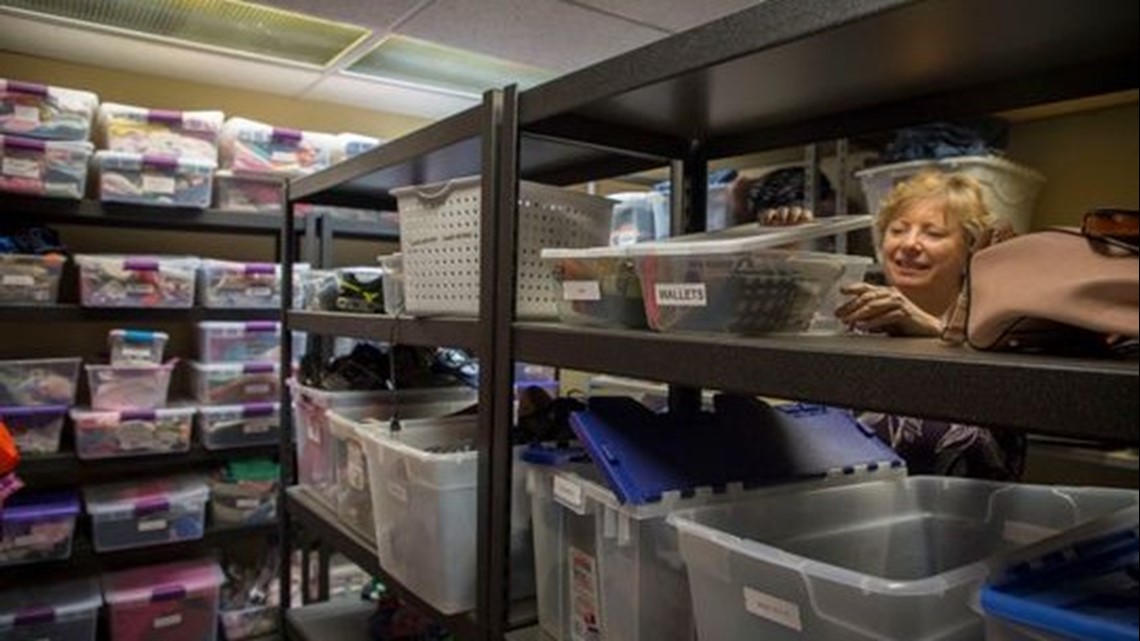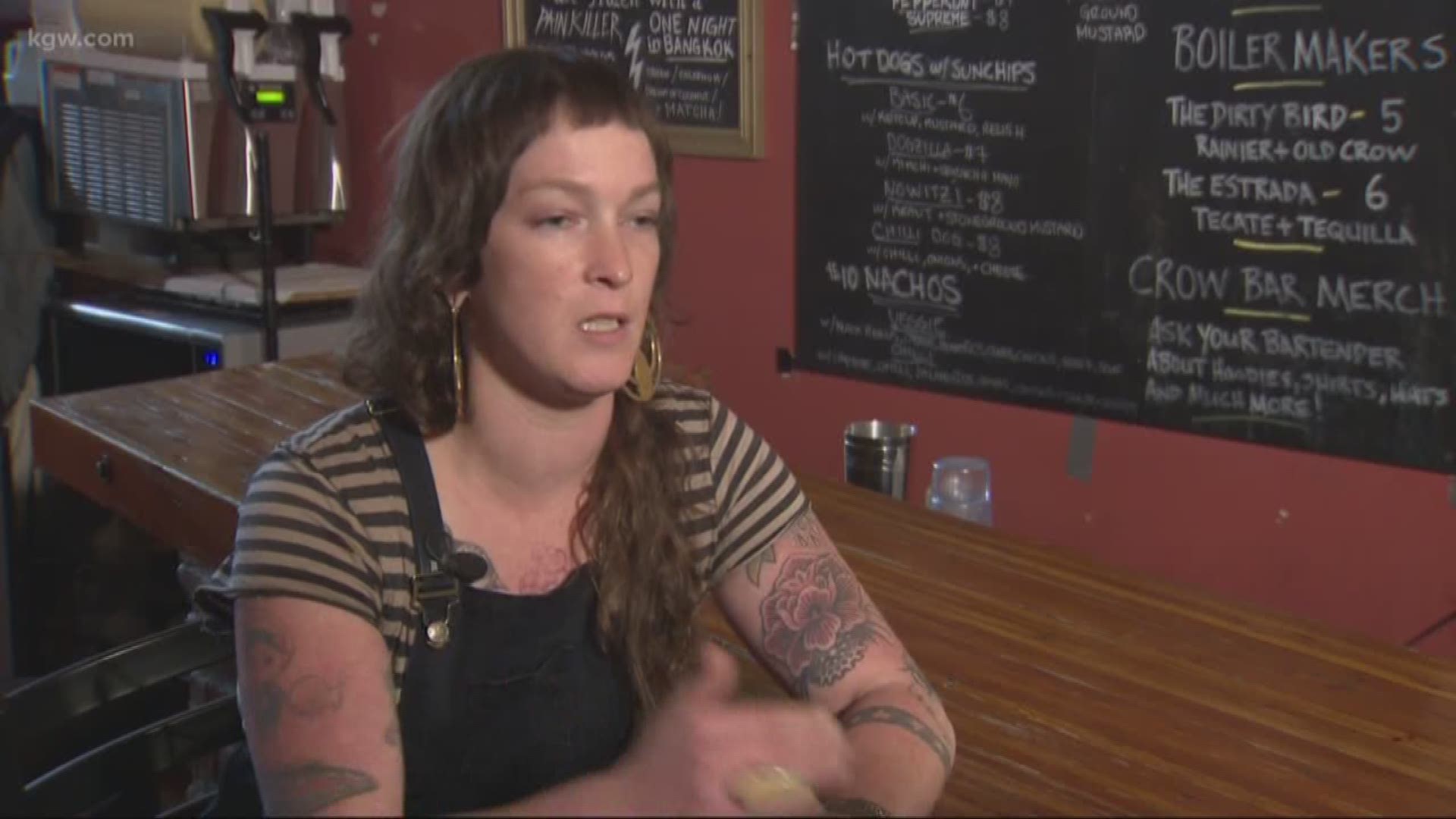Salem has almost twice as many sex crimes reported per capita as the Portland metro area.
And of Oregon’s five largest counties, Marion ranks second for sex offenses per 100,000 people, just below Lane, state data analyzed by the Statesman Journal show.
Most of the cases involve child sex abuse or substance-related rape. But law enforcement experts aren't sure why the cases are so pervasive in Marion County and less so in Multnomah, Washington and Clackamas counties.
“It does seem like we have a lot here,” said Scotty Nowning, a Salem Police detective. “It’s a super complicated issue. … There’s not a black and white answer.”
Some believe these crimes are happening more frequently, in part, because of a lack of affordable daycare options, allowing predators easier access to children.
Others suggest a higher rate of recidivism among sex offenders who stay in the Salem area after being released from one of the nearby state prisons.
Rising drug and alcohol use on college campuses also could contribute to the higher rate of assaults.
But the surge in sex crime reports — 15 percent in Marion County in the past three years — can't be attributed solely to more crimes being committed, experts say.
In part, the increase is believed to reflect a greater willingness by victims to come forward, especially with the recent public spotlight on sexual misconduct and the #MeToo movement.
But law enforcement in Marion County warn too many sexual assault and abuse cases still go unreported.
“We can't get a handle on the issue if we don't know how often it's going on,” said Nowning, who has been examining sex crimes for five years with Salem Police. “We need to know what's going on in our (area)."
Sexual abuse reports don't translate directly into arrests.
Since 2013, only a quarter of reported sex crimes resulted in arrests, a pattern that holds true for most Oregon counties, state data show.
Sometimes witnesses refuse to testify, evidence is incomplete or statutes of limitations have expired. Nowning says investigations also can be limited by inadequate resources, lack of appropriate training and conflicting legal standards.
Marion County sex crimes: Why we did the story
Reflecting national trends


In 2017, Marion County had 155 sex crimes reported per 100,000 people.
That was significantly more than Oregon's three most populous counties making up the Portland metro area — Multnomah with 97, Washington with 106 and Clackamas with 81 reported cases.
In total, more than 525 sex offenses were reported to authorities in Marion County in 2017 — a 10 percent increase from the previous year.
During the same year, Oregon police agencies logged about 4,700 sex crime reports statewide.
These crimes include: rape, sodomy, fondling, molestation, contributing to sexual delinquency, obscene phone calls, sexual assault with an object and unlawful contact with a minor.
Oregon’s statewide numbers closely align with national trends.
In the United States, one in six women and one in 33 men have been the victim of a rape or attempted rape, according to the Rape, Abuse and Incest National Network.
Children most frequent victims
Children are more at risk of becoming victims of sexual violence than adults, especially young girls.
Nearly 77 percent of all reported sexual assaults in the United States happen to persons under the age of 17, according to Stewards of Children, a national child-care training program.
“It’s not a level playing field for children,” said Alison Kelley, chief executive officer of Liberty House, a child abuse assessment center in Salem.
n most cases, offenders are known to the victim through a family, intimate or acquaintance relationship. A majority are adult men with at least one prior conviction.
Nowning, the Salem detective, said a majority of the sex crimes that he investigates involve nonrelated persons abusing children under their watch.
Parents often leave their children with people they shouldn’t because they can’t afford proper childcare, Nowning said. Almost 13,000 workers in the Salem area relied on $10.25-an-hour minimum wage jobs last year, according to state data.
“Here is a seemingly good-natured person willing to watch their kids, but that person is actually someone who offends against them,” he said. “We see that a lot.”
Nowning said sometimes these reports involve registered sex offenders who were released from prison and remained in the area.
At least 60 known sex offenders live in Marion County, according to the Oregon State Police Sex Offender Inquiry System.
Traditionally, the detective said, Marion County has had a large population of ex-inmates because there are several correctional facilities in the area.
It's important to note, however, that research compiled by Stewards of Children indicates convicted sex offenders have a lower recidivism rate than other criminals.
Story continues below:
Encouraging more reporting
Police also receive sexual assault reports from Willamette University, Corban University and Chemeketa Community College campuses involving drugs or alcohol, detective Nowning said.
College-aged women, 18 to 24 years old, are three times as likely to be sexually assaulted, according to some studies.
Nowning says the risk increases when a controlled substance is involved.
Appeal succeeds: Sublimity man wins new trial for sex abuse conviction from 2015
He attributes part of the Marion County increase in sex-abuse reports to having more mandatory reporters designated by the Legislature, including school staff, medical professionals and police.
But Nowning said the increase also could reflect a greater willingness for victims to come forward.


Jayne Downing said the number of sexual assault calls to the Center for Hope and Safety in Salem has doubled in the last couple of years. The nonprofit provides support to victims of sexual and domestic violence.
Most of victims coming to the office don’t want to make a formal report, said Downing, the center's executive director.
The predominantly adult women victims want to be connected to services, such as counseling, or are in need of a place to stay, she said.
“(When a report is made) it then gets taken out of their hands,” Downing said. “They’ve already had a lot of power taken away from them by someone assaulting them and it may feel as though even more power is being taken away.
"It’s very traumatic to tell your story.”
Downing said past experience with police also plays a role in whether a survivor will choose to make a formal report.
Other reasons cited in studies that show two-thirds of sex offenses are not reported to law enforcement include shame and confusion about what happened or anxiety for family and friends having to go through the reporting process.
“There’s all these layers to it … and I don’t think any of us can decide for them what they should do,” Downing said. “Sometimes people say, ‘everybody should report and everybody should get arrested,’ but it’s not quite that simple.”
Prosecution can get complicated
Law enforcement agencies in Marion County arrested 137 suspects for sex crimes in 2017 — an eight percent decrease over the past two years.
Nowning said he wasn’t surprised by the drop because his department has lost two of its experienced detectives during that time. Including Nowning, Salem Police has four sex crime investigators.
He said detectives need special training to be able to interview children in sex abuse cases, but only a few in the department are, including himself.
“Resources are an issue. Lack of training is an issue,” Nowning said. “You really have to be a chameleon — you have to be able to talk to a 5-year-old kid about the most intimate and embarrassing thing in an appropriate, understandable way … then flip gears and talk to a monster who does heinous things to children.
"It’s the best and worst job."
Sometimes, Nowning said, there’s just not enough information for an investigation to proceed or a detective to be assigned to a case, which are triaged by level of urgency or solvability.
“You’re relying on testimonial evidence and humans are somewhat unpredictable. … Sometimes it’s great evidence and sometimes it’s terrible,” Nowning said. “You know it happened, but knowing it happened and proving it happened are twodifferent things.”
Most often it depends on what the victim wants to do, he said. Convictions are more likely when a victim is willing to be an active participant throughout the legal process.
Nowning said police tactics are more trauma-informed than past years, giving survivors time to process what happened rather than pelting them with questions.
He has put several cases on hold while victims decide how they want to proceed, telling them “when you’re ready and able to participate, come back.”
“I imagine some will never come back, but some will and they have,” he said.
Restaurant inspections: McMenamins Thompson Brewery & Public House, Wild Pear, Venti's
Deputy District Attorney Brendan Murphy said the DA’s office and law enforcement review entire investigations to try to avoid arrests that do not result in prosecution.
“Just because we can arrest someone doesn’t always mean we should, especially if we know they won’t be prosecuted,” Nowning said. “It’s irresponsible to put a victim through the court system if you know you can’t convict someone.”
After an arrest is made, the DA’s office has to quickly decide whether they will prosecute.
While a range of reasons can prevent charges from being filed, most often it is because of insufficient evidence, Murphy said. Sometimes the victim isn’t legally competent enough to testify or is unavailable as a witness.
A majority of the DA’s cases result in conviction, either through plea negotiations or conviction at trial, he said.
Sentences vary, but generally include time in prison, Murphy said. Out of every 1,000 sexual assaults, the Rape, Abuse and Incest National Network estimates 57 individuals will be taken into custody, 11 prosecuted and six incarcerated.
Advocates seek cultural shift
During her time in the Legislature, Sen. Sara Gelser, D-Corvallis, has pushed for laws holding sex offenders accountable while supporting victims on college campuses and in tribal communities.


Gelser said some of the new laws increased the statute of limitations on sex crimes and allowed offenders to be charged if there is new DNA evidence.
She also successfully spearheaded a bill in 2009 that defined sex with an incapacitated person as rape.
Gelser said victims are now able to track the status of their rape kits and file for an order protecting them against people who aren’t family or intimate partners.
For the upcoming session, she will sponsor a proposal that would automatically renew the protection orders, which currently expire after one year.
“We need laws that reflect that sexual assault is 100 percent the responsibility of the offender," Gelser said. "It isn’t about sex, it’s about vulnerability and power.”
But Gelser doesn't think sexual assault is something any single law can fix. And neither does Downing, who believes more effective cultural teachings about sex and relationships is needed.
Downing said there needs to be more open dialogue to change the way society views victims.
"It shouldn't matter what you're wearing. You don't deserve to be sexually assaulted," Downing said. "No one does."
Contact reporter Olivia Heersink at oheersink@statesmanjournal.com, 503-399-6657 or follow her on Twitter @heersinkolivia.

